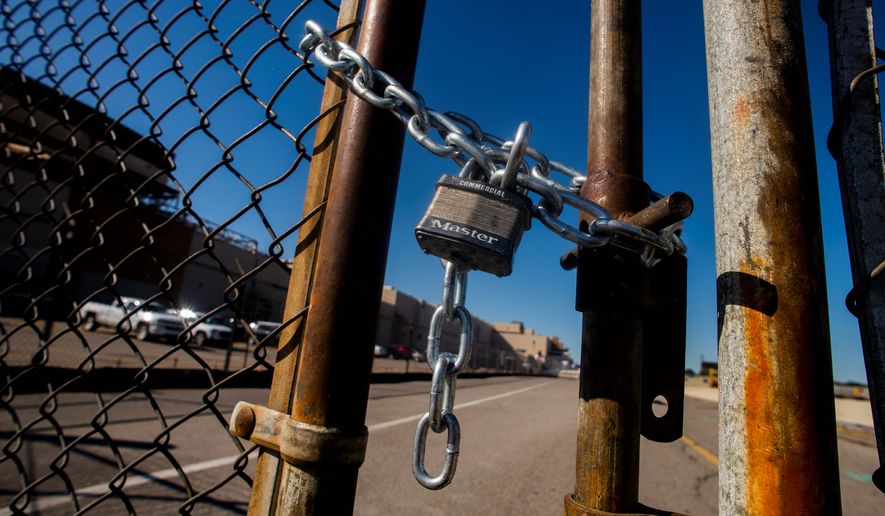Talks to end the nation’s largest strike in decades have taken “a turn for the worse” as GM officials continue to reject bluntly the latest settlement offers from the United Auto Workers.
Already, the strike is entering its fourth week — far longer than many expected — with no end in sight amid worries the labor action will have damaging consequences for the overall U.S. economy.
Negotiations continued Monday in Detroit amid increasing rancor from UAW Vice President Terry Dittes, who has cast doubt on whether there will be a quick settlement in the contract dispute that has sent 49,000 workers to the picket lines on Sept. 16 and weakened GM’s factories.
GM officials, in their latest public statement, maintain they are continuing to negotiate in good faith “with very good proposals that benefit employees today and builds a stronger future for all of us.”
Major sticking points remain, according to those with knowledge of the talks, especially over the use of temporary workers and concerns about GM’s increasing production in Mexico, The Associated Press reported. Of GM vehicles sold in the U.S., 22% are produced in Mexico.
Wall Street continues taking a dim view of the proceedings, with traders driving stocks of the country’s largest automaker down 10% since just before the work stoppage began.
Estimates of the production cuts, which have affected at least 55 GM facilities nationwide, are in the vicinity of $1 billion overall. Losses of potential North American profits are roughly $80 million per day, according to JPMorgan.
On Monday, Michigan Gov. Gretchen Whitmer said she is concerned about the growing impact of the strike.
“These things are important, that they try to remedy them and find some common ground as quickly as possible,” she said.
Monday also saw GM add to the list of plants it has closed in Canada and Mexico, shutting down an engine assembly line at its Ramos Arizpe plant in Mexico, idling about 415 workers.
The longest major strike in decades is unfolding amid rising fears of slowing national economy, stirred by concerns that President Trump’s trade war with China is taking its toll on U.S. manufacturers.
On Monday, the National Association for Business Economics released its quarterly outlook with economists predicting the U.S. gross domestic product would expand less than 2% next year, the slowest rate since 2016. The White House’s trade war was cited as the leading threat to global growth.
A prolonged auto strike could play a major role in the 2020 presidential race, pundits say, especially in the rust belt swing states of Michigan and Ohio — the very heart of the UAW-GM standoff. Michigan voters in the 2016 election supported Mr. Trump over his Democratic rival Hillary Clinton by less than 1 percentage point.
Democratic presidential hopefuls have jumped at the opportunity to support the strikers, with former Vice President Joseph R. Biden and Sens. Elizabeth Warren of Massachusetts and Amy Klobuchar of Minnesota all having joined picket lines.
Mr. Trump has been seen as walking more of a tightrope between the blue-collar support he needs to win Ohio and Michigan and long-established anti-union sentiments within the Republican Party. He initially voiced concerns over the work stoppage but has been relatively quiet since it first began.
“It is an easy opportunity for Trump to try and weigh in as a nontraditional Republican candidate,” Michigan State University political scientist Matt Grossmann told The Washington Times. “But there is a risk of upsetting Republican voters who do not support the UAW.”
Mr. Grossman added that many striking workers note how vocal Mr. Trump has been in the past about U.S. manufacturing jobs heading overseas and “some have pointed out that they were hoping that Trump would weigh in more” on the strike.
• This article is based in part on wire service reports.
• Dan Boylan can be reached at dboylan@washingtontimes.com.




Please read our comment policy before commenting.